Marine Life & Conservation
Carpe Diem Maldives initiate ‘Rescue a Reef’ programme with October Marine Expedition
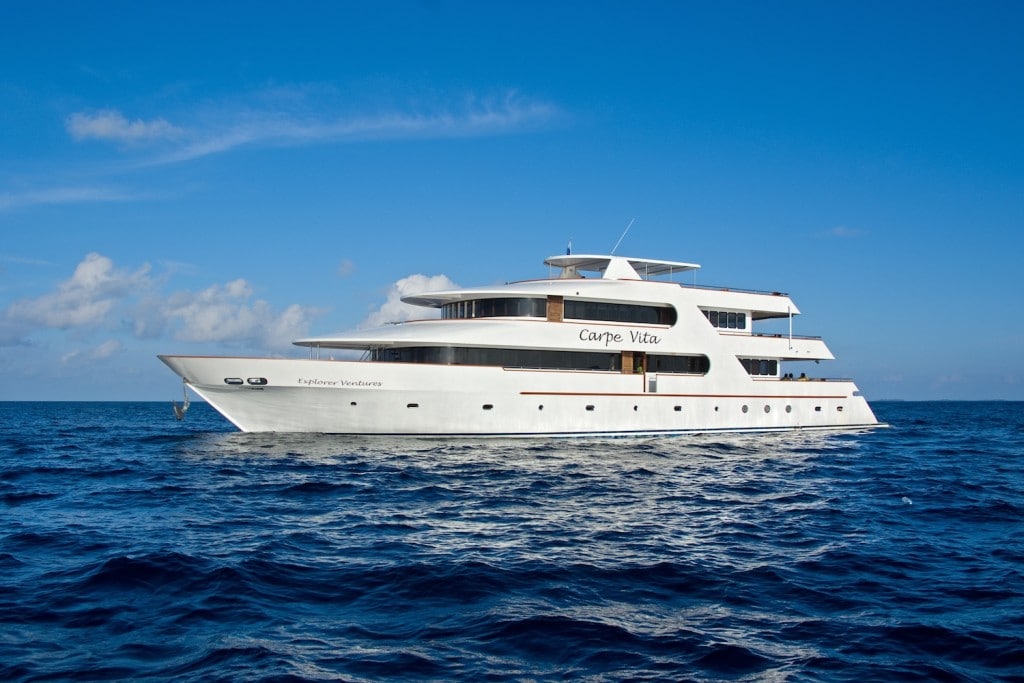
Carpe Diem Maldives Pvt. Ltd. confirms its ongoing collaboration with American organisation Coral Reef CPR with the launch of its official CSR programme ‘Rescue a Reef’. Taking a concerted approach towards protecting and restoring the health of coral reefs and marine life in the Maldives, ‘Rescue a Reef’ invites guests to join marine expeditions on Carpe Diem’s liveaboard adventure cruises and encourages guest donations to support Coral Reef CPR’s work.
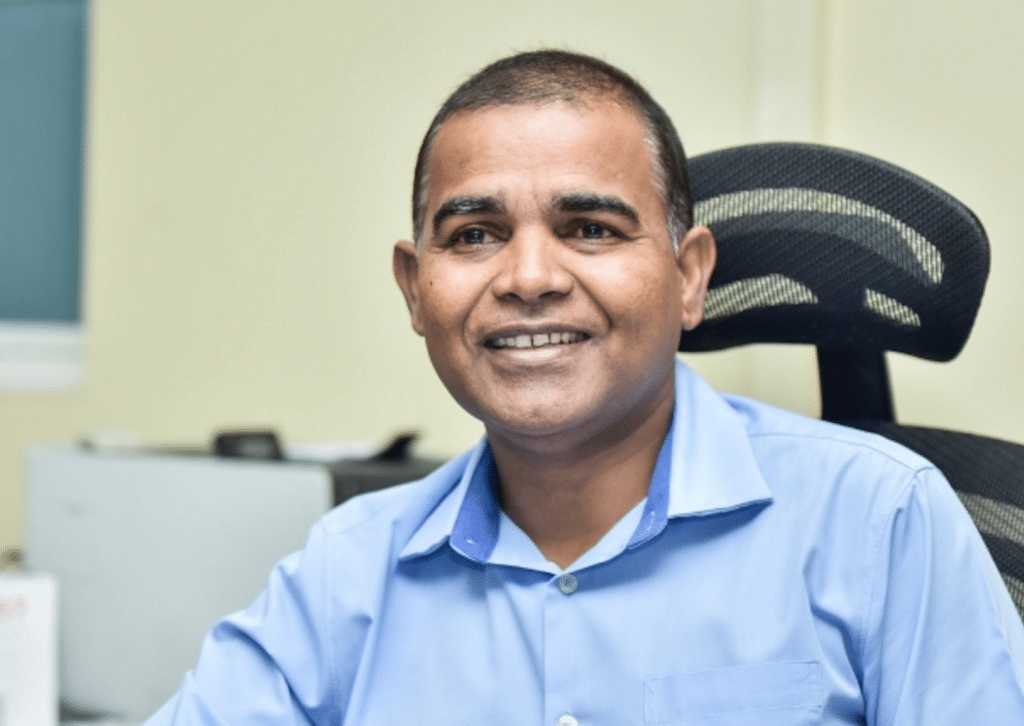
Amir Mansoor, Managing Director for Carpe Diem Maldives
In establishing the Rescue a Reef initiative, Carpe Diem Maldives confirms its continued support for Coral Reef CPR’s work, which began with research assistance in 2016. Managing Director for Carpe Diem Maldives, Amir Mansoor, says, “In our collaboration over the last 18 months, I’ve experienced first-hand how the marine biologists from Coral Reef CPR identify early on when nature is out of balance, investigate to find out the cause using their expertise and laboratory tests, and then implement scientific methods to help restore that balance, making it more robust for future events. Their methodology and scientific knowledge are among several reasons why Carpe Diem Maldives enjoys a productive collaboration with Coral Reef CPR, and we whole-heartedly support their HARP programme – Holistic Approach To Reef Protection.”
To officially launch the Rescue a Reef initiative, Carpe Diem Maldives Pvt Ltd. will host its third marine expedition with Coral Reef CPR’s returning marine biologists Dr Andrew Bruckner and Georgia Coward in October 2017. The week-long expedition will target the house reef and surrounding areas of the company’s current resort development in Raa Atoll. “During our surveys of Raa and Baa Atoll we’ve seen an abnormally high number of cushion starfish. This is a concern, because these animals target juvenile cauliflower (Pocillopora) and staghorn (Acropora) corals, and these are the corals that are critical for a speedy recovery from last years bleaching event,” explains Dr Andrew Bruckner, Chief Scientist from Coral Reef CPR.
From 22-29 October 2017 up to 20 recreational divers can join Chief Scientist Dr Andrew Bruckner and his team of researchers as they conduct a Cushion Starfish removal from reefs in Raa Atoll, carry out quantitative reef surveys, and data analysis while enjoying Carpe Diem’s hospitality on board Carpe Vita liveaboard cruise.
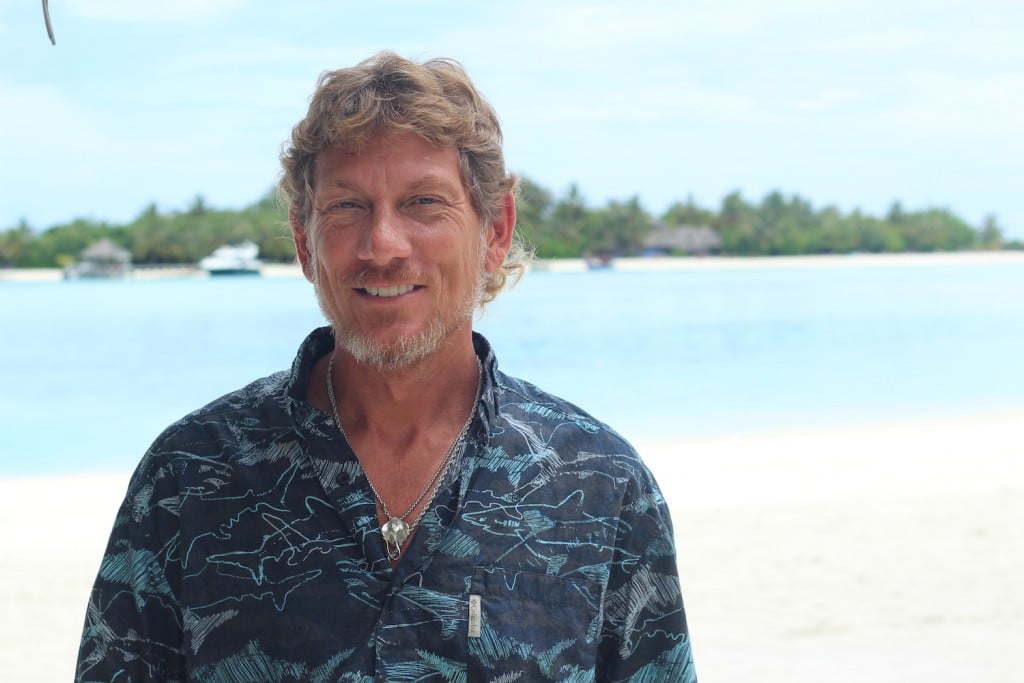
Dr Andrew Bruckner, Chief Scientist from Coral Reef CPR
Speaking on the expanding partnership, Dr Bruckner says, “We’re thrilled at this long term commitment from Carpe Diem Maldives. It is always wonderful when a company responsibly embraces a pro-active approach to environmental protection and conservation. Engaging with their guest divers over the last year is inspiring for us as we believe that education is at the forefront of successful coral reef conservation. Raising awareness on the critical importance of reefs and tangible actions that can be taken to ensure that these ecosystems continue to support the abundance of marine life and provide benefits to humans, is key to the future of the Maldives.”
The first dedicated crown of thorns starfish removal in May 2017 involved seventeen recreational divers from nine countries. The divers worked with Carpe Diem and Coral Reef CPR to collect a total of 900 COTS from 15 reefs on North Malé and South Malé Atolls over a one-week period. A second expedition is already planned and fully booked for September 2017. With an increasing number of enquiries for alternative dates, the demand for such marine expeditions is showing encouraging signs.
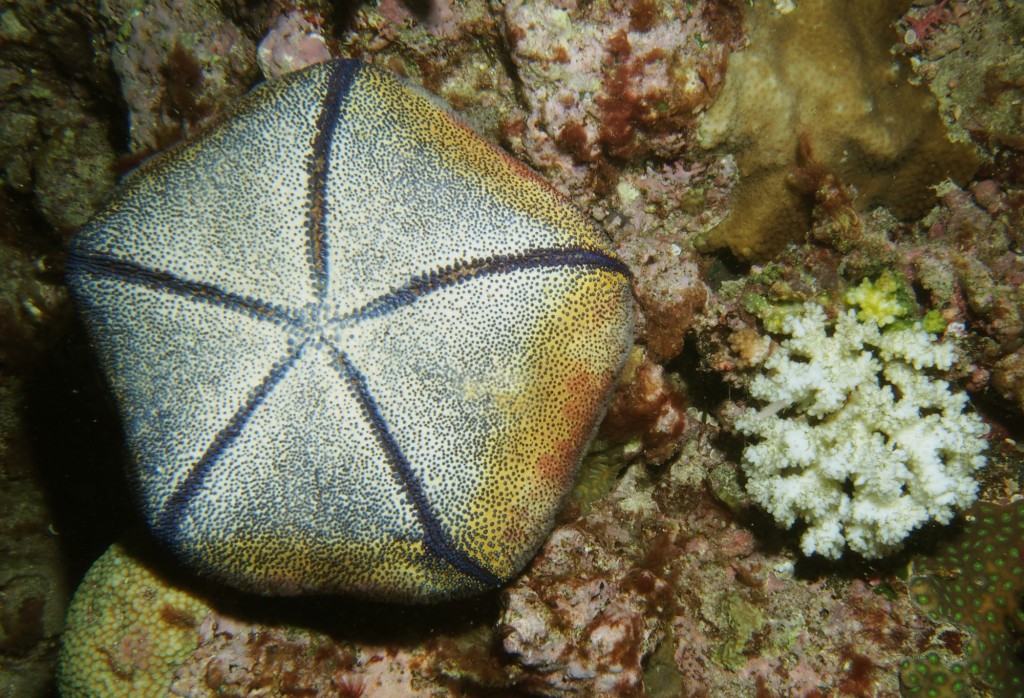 To join the October marine expedition and launch of Carpe Diem Maldives ‘Rescue a Reef’ CSR programme, divers must have an Advanced PADI qualification, excellent buoyancy control and ideally a minimum of 70 dives. Priced from just USD 700 per person for the week, the trip from 22-29 October includes:
To join the October marine expedition and launch of Carpe Diem Maldives ‘Rescue a Reef’ CSR programme, divers must have an Advanced PADI qualification, excellent buoyancy control and ideally a minimum of 70 dives. Priced from just USD 700 per person for the week, the trip from 22-29 October includes:
- 7 nights aboard Carpe Vita vessel
- 3 meals daily, plus between-dive snacks
- Up to 4 dives daily (except for on day of arrival and day before departure) including one or two night dives
- Use of tanks, weights and belts
- Complimentary coffee, tea and drinking water
- Airport transfers on the days of embarkation/disembarkation
- Evening workshops on marine ecology, coral reef importance, marine life and more
- On-board marine biologists
- GST 12%
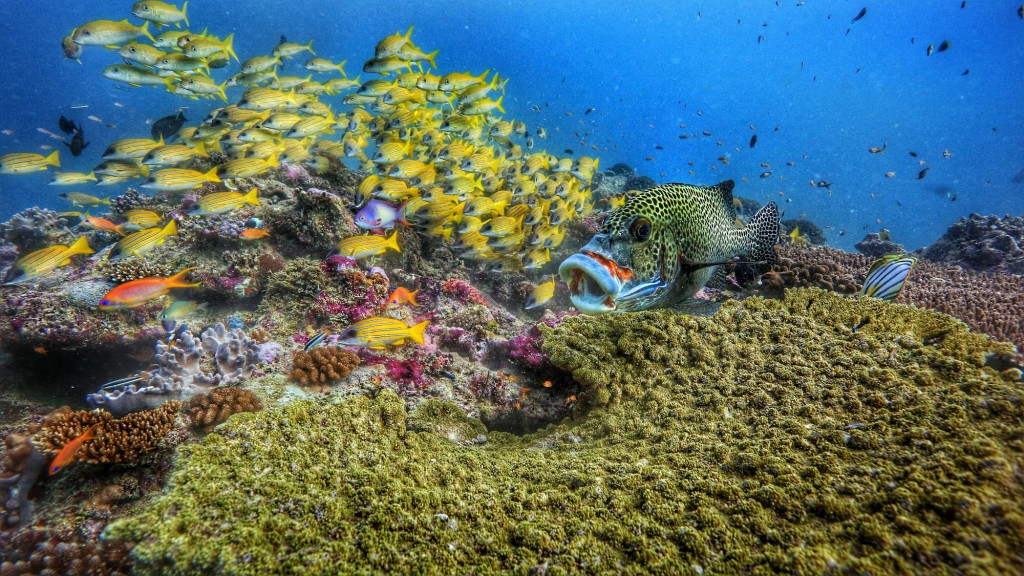
Divers with an avid marine conservation interest should not miss out on this unique opportunity to work alongside expert marine biologists. To support the work of Coral Reef CPR, an additional contribution of USD 150 p/p will be added to the final bill, payable before or at the end of the trip. For bookings and further information please visit https://carpediemmaldives.com/carpe-vita-rates-schedules.
Marine Life & Conservation
Paul Watson Released as Denmark Blocks Japan’s Extradition Bid

Renowned anti-whaling activist Paul Watson has been released from custody in Greenland after spending five months in detention. Denmark’s Justice Ministry rejected Japan’s request for his extradition, citing insufficient guarantees that his time already served in custody would be credited against any potential sentence.
The 74-year-old Canadian-American was arrested on July 21 in Nuuk, Greenland’s capital, when his ship docked to refuel. His arrest was based on a 2012 Japanese warrant related to a 2010 encounter in Antarctic waters. Japan alleged Watson obstructed operations and caused damage to a whaling research ship during efforts to disrupt illegal whaling. Watson has consistently denied these claims, maintaining his commitment to marine conservation.
Denmark, which oversees extradition matters for Greenland, concluded that while the legal conditions for extradition were met, the lack of assurances from Japan regarding time-served credit made extradition untenable.
In a video shared by his foundation, Watson expressed gratitude and relief, saying, “After five months, it’s good to be out… and good to know they’re not sending me to Japan.” He added that the most difficult part of his time in custody was being separated from his two young sons.
Watson is a pioneering figure in marine conservation, known for founding the Captain Paul Watson Foundation in 2022 after decades of activism with the Sea Shepherd Conservation Society. His bold efforts to defend marine life have earned him widespread support, including from celebrities and conservationists. His work has also been featured in the acclaimed reality TV series Whale Wars.
Watson’s lawyer, Jonas Christoffersen, praised the decision, stating, “We are happy and relieved that Paul Watson is now free.” He added that Watson is eager to reunite with his family and continue his vital work.
The arrest occurred while Watson’s vessel, the M/Y John Paul DeJoria, was en route to the North Pacific with a team of 26 volunteers to intercept a Japanese whaling ship. His foundation described the arrest as politically motivated and emphasized that Watson’s actions were focused on ending illegal whaling practices.
Japan resumed commercial whaling in 2019 after leaving the International Whaling Commission, asserting that whale meat is a cultural tradition. Conservationists, however, continue to challenge these practices, highlighting their impact on marine ecosystems.
Despite the challenges, Watson remains steadfast in his mission to protect marine life and bring attention to whaling practices. His dedication to ocean conservation has made him a globally respected advocate for the environment.
Marine Life & Conservation
12 Days of Zero-Waste Fish-mas

This holiday period, the Marine Conservation Society, the UK’s leading ocean membership charity, invites you to make some simple changes to eating fish this Christmas to help our seas.
Dr Kenneth Bodles, Head of Fisheries and Aquaculture at the Marine Conservation Society, said, “During the festive season, our consumption increases, but so does waste. Sustainability isn’t just about where food comes from – it’s also about how you use it. By reducing waste and making the most out of your seafood, you’re not only taking steps to be more ocean-friendly, but can also help to cut costs during what is often one of the most expensive times of the year”.
The Marine Conservation Society has compiled twelve tips on how to consume seafood sustainably with zero-waste this Christmas:
Buy whole fish instead of fillets
Instead of fillets, consider buying whole fish such as salmon, hake, or lemon sole. By adopting a “nose to tail” approach with cooking, whole-baked fish not only feeds a crowd, but also helps to minimise waste and maximise sustainability by using up every part of the animal, including bones, skin, and fat.
Make fish stock
Leftover fish bones or shells can be put to good use by boiling them to make a nourishing fish stock or bisque. This can be frozen and preserved for later use and makes for a flavourful base in a soup.
Make your own fish pâté
Avoid waste by turning leftover fish, such as smoked mackerel or salmon, into a delicious pâté by blending with cream cheese and lemon. Perfect when paired with crackers.
The sustainability of salmon and mackerel varies depending on where and how it is caught or farmed. For more information on green-rated options, check the charity’s Good Fish Guide.
Buy frozen
By purchasing seafood that is frozen or vacuum-packed, this helps to reduce waste by extending the shelf life of your food.
Fish pie
If you’re wondering what to do with leftover cooked fish, why not opt for a classic fish pie with mashed potatoes, leeks, and a cheesy sauce? A sure crowd pleaser on Boxing Day.
Use the head
Don’t forget the fish head! The meat is incredibly tender and flavourful. The charity recommends a cod’s head curry or recreating Fallow’s renowned cod’s head in siracha butter.
By stretching your ingredients further, not only is this a more sustainable way to enjoy seafood, but also cost-effective by repurposing leftovers and cooking creatively.
Boxing Day brunch
Mix leftover kippers or smoked salmon with scrambled eggs for a tasty, zero-waste, Boxing Day brunch.
For best choice, make sure you buy kippers, or herring, from the North Sea and the North Irish Sea.
Zero-waste storage
A top tip from the Marine Conservation Society to avoid waste is freezing fish offcuts to save for future use.
Crisp up the skin
Even leftover fish skin can be turned into a quick savoury snack by crisping it up in an air fryer with a little olive oil and salt.
Anchovies two ways
Leftover anchovies can either be blended with butter to make a delicious anchovy butter or tossed into pasta for a hit of umami flavour.
The charity recommends opting for anchovies caught in the Bay of Biscay for best choice.
Fishcakes
For an easy, zero-waste meal, leftover seafood trimmings can be mixed with mash and fried in breadcrumbs to make fishcakes.
Pickled mussels
Try pickling mussels in 1:1 vinegar and water, with a dash of sugar for a sustainable, zero-waste snack that can be enjoyed well beyond the festive season.
Mussels farmed in the UK are a seafood superhero. Grown using low-impact methods and harvested by hand, they get all the food they need from the sea around them. This makes them one of the most sustainable, ocean-friendly, and cost-effective seafood options.
Players of People’s Postcode Lottery have raised £6.6M towards the Marine Conservation Society’s vital work in making seafood more sustainable.
Laura Chow, Head of Charities at People’s Postcode Lottery, said: “Fish is a festive favourite for many, but making sustainable choices when it comes to how we buy and eat seafood makes all the difference for our ocean. Support from players of People’s Postcode Lottery has helped the Marine Conservation Society further its sustainable seafood work, so that we can all enjoy healthier, better protected seas.”
The Marine Conservation Society encourages you to make sustainable seafood choices a year-round habit, not just for Christmas. To check how sustainable the seafood on your plate is, you can visit the charity’s Good Fish Guide. The Guide helps consumers and businesses identify the most sustainable seafood using a simple traffic light system, based on where and how species are caught or farmed. Green is the best choice, amber means improvements are needed, and red indicates fish to avoid buying.
Zero-waste gift idea
Why not embrace a zero-waste Christmas by gifting a membership to support marine conservation? It’s a meaningful, low-waste gift that helps protect our ocean for generations to come. Memberships start from as little as £5 a month – the price of a sandwich and drink from your local coffee shop.
Find the latest sustainable seafood advice for wild-caught and farmed seafood on the Good Fish Guide, downloadable to your phone from www.mcsuk.org/goodfishguide.
-

 News2 months ago
News2 months agoIconic SS United States to become the World’s Largest Artificial Reef
-

 News3 months ago
News3 months agoBook Review – 52 Assignments: Underwater Photography
-

 Gear News3 months ago
Gear News3 months agoDYNAMICNORD – New German diving brand enters the British market
-

 News3 months ago
News3 months agoExploring Cenote El Pit: A Diver’s Dream
-

 Gear News3 months ago
Gear News3 months agoTry BARE drysuits (and maybe even win one!) this Friday with Sea & Sea at North West Dive Fest
-

 Marine Life & Conservation3 months ago
Marine Life & Conservation3 months agoBook Review: Coral Triangle Cameos
-

 Blogs2 months ago
Blogs2 months agoDive the Egyptian Red Sea this Autumn with Regaldive
-

 News3 months ago
News3 months ago2024 Ocean Art Underwater Photo Competition Announced



